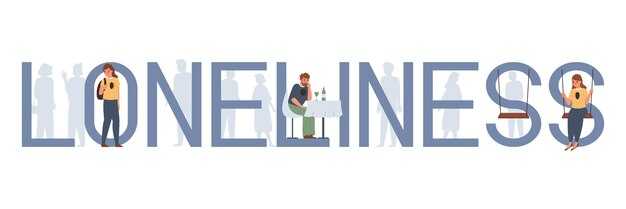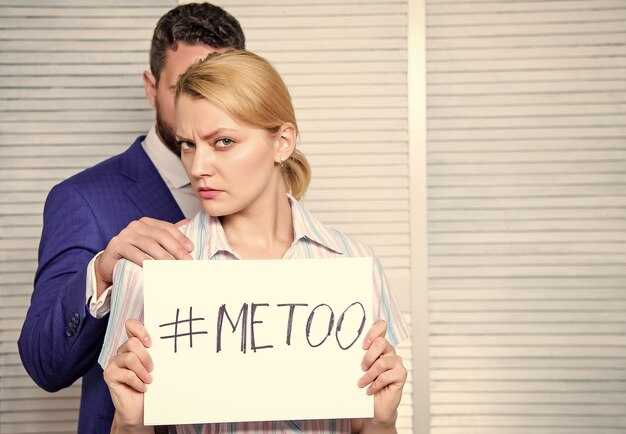This will be a difficult truth for some to accept, but the reason I am who I am today is because Emily began to enforce clear boundaries after my affair. I changed into a better man precisely because she stopped rescuing me from the consequences of my own self-destructive choices. Many of you are natural fixers, givers, and empaths—you want to rescue people—and I say this as kindly as I can: when you keep shielding someone from the fallout of their toxic actions, when you act as a bridge over the gap so they never feel the natural consequences, you are not helping them; you are harming them and yourself. Constantly bending over backward to spare them discomfort does not save their future from pain; it risks enabling them to repeat the same harmful patterns. I know disconnect feels unbearable. I know you notice the good in them and are quick to excuse their faults—“they had a rough childhood,” “they’re under a lot of stress,” “they’re just struggling right now.” All of that may be true, but intervening to prevent consequences teaches them they don’t need to change because someone will always soften the blow, cover for them, or take on the cost. Yes, support and help are important, but ultimately it is not your duty to fix people who do not genuinely want to heal. You are not a hospital for wounded souls who refuse to get better. We must be able to feel compassion for someone’s pain while still holding them responsible for behaviors that cause distance and fracture relationships—behaviors like self-centeredness, pride, arrogance, name-calling, yelling, controlling actions, affairs, addictions, and abuse. When we repeatedly spare loved ones from the result of their repeated choices, we teach them they can continue without change because someone else will always absorb the consequences. In the end, we reap what we sow, and those who never face the harvest of their bad choices rarely wake up to the fact that they have been planting bad seed.
Practical Steps to Create and Maintain Boundaries
Turning awareness into action requires clarity, consistency, and courage. The following practical steps can help you move from protecting someone to holding them accountable in healthy ways.
- Define specific boundaries. Vague statements (“I can’t do this anymore”) are less effective than clear limits (“I will not be in the same house with you if you are intoxicated,” or “I will not engage in romantic contact with you until you complete counseling and stop communicating with the other person.”).
- Communicate calmly and directly. Use “I” statements and plain language: “I feel betrayed and unsafe after the affair. I need space and transparency. Until I see consistent honesty and counseling, I’m stepping back from the relationship.”
- Set consequences and follow through. Decide beforehand what you will do if the boundary is crossed (leave the room, suspend contact, change living arrangements, talk to a therapist together). Then implement those consequences without negotiation when needed. Predictability teaches responsibility.
- Offer support — not rescue. If you want to help, offer resources (therapists, support groups, treatment programs) but avoid taking on their responsibilities (paying bail for repeated dangerous behavior, covering debts they created, or lying to protect them).
- Use short, scriptable lines when emotions run high. Examples: “I won’t engage when you yell. We will speak when we can both be calm.” “If you continue to deny what happened, I will step away from this relationship.”
How to Tell If You’re Enabling
- You frequently make excuses for their behavior or lie for them.
- You assume responsibility for solving problems they caused.
- Your life and plans are constantly rearranged to minimize their consequences.
- You fear their discomfort so much you prevent them from facing natural outcomes.
How to Hold Consequences Compassionately
- Be firm but humane. Consequences are a learning tool, not punishment for spite. Explain why the consequence matters and that it’s meant to encourage change.
- Separate the person from the behavior. Say, “I love you, but I cannot accept this behavior,” rather than attacking character.
- Be consistent. Inconsistent enforcement undermines credibility and teaches them they can test limits.
- Allow space for repair. If they take genuine steps toward change (therapy, accountability, apologies with actions), consider a graduated path back to trust rather than an all-or-nothing approach.
When Safety Is a Concern
If there is abuse, threats, violence, or addiction that endangers you or others, prioritize safety. That may mean involving trusted friends or family, contacting local authorities, obtaining a protective order, or finding temporary housing. Safety planning and professional intervention are crucial; loving boundaries do not require you to stay in harm’s way.
Self-Care for the Boundary-Setter
Holding tough boundaries is emotionally exhausting. Protect your well-being with concrete self-care: keep regular therapy or coaching, join support groups (SPP, Al-Anon, or local survivor groups), maintain routines that ground you (sleep, exercise, social connection), and set aside time to process your feelings through journaling or trusted friends. Remind yourself that enforcing consequences is an act of care—for yourself and potentially for the other person’s long-term growth.
When to Bring in Professionals
- Couples therapy when both parties are willing to work on trust and behavior change.
- Individual therapy for trauma, addiction, or patterns that contribute to destructive choices.
- Legal or medical professionals if safety, financial exploitation, or criminal behavior is present.
Common Pitfalls and How to Avoid Them

- Pitfall: Staying too long in “hopes” rather than reality. Fix: Set a reasonable timeframe for seeing change and reevaluate with tangible milestones.
- Pitfall: Confusing compassion with responsibility for outcomes. Fix: Offer empathy and resources but keep accountability in their hands.
- Pitfall: Isolation to avoid making hard choices. Fix: Seek counsel from impartial friends, clergy, or therapists to gain clarity and support.
Final Thought
Holding someone accountable is not cruelty — it is a realistic, often loving response that protects you and gives the other person a clearer path to change. Natural consequences can be painful, but they are also the most reliable teachers. By setting boundaries and allowing consequences to land, you create conditions where growth is possible, and you protect your own capacity for health and compassion.


 Their Actions Have Consequences.">
Their Actions Have Consequences.">

 İşte Onları Mesafeni Kapatmaya Sevk Eden Şey! (Nihayet Sana Yazdıkları An) | Jordan Peterson Motivasyon Konuşması">
İşte Onları Mesafeni Kapatmaya Sevk Eden Şey! (Nihayet Sana Yazdıkları An) | Jordan Peterson Motivasyon Konuşması">
 ÇOCUKKEN KİMSEYE SESLENMEMİŞSİNİZ… ŞİMDİ SİZİNLE Ne Yaptığı İŞTE!">
ÇOCUKKEN KİMSEYE SESLENMEMİŞSİNİZ… ŞİMDİ SİZİNLE Ne Yaptığı İŞTE!">
 You’re Not Crazy — This Is What Female Trauma Looks Like">
You’re Not Crazy — This Is What Female Trauma Looks Like">
 Why they say "Nothing I DO is Good Enough!!"">
Why they say "Nothing I DO is Good Enough!!"">
 ">
">
 Neden Kaçıran Partneriniz Sizi Taşlaştırıyor ve Nasıl Bittiğimi.">
Neden Kaçıran Partneriniz Sizi Taşlaştırıyor ve Nasıl Bittiğimi.">
 Bu İlişki Çift Standartının KULPANI siz misiniz?">
Bu İlişki Çift Standartının KULPANI siz misiniz?">
 Ebeveynlerin Rahatsız Cinsel Davranışlarından Kaynaklanan Aşırı Uyanıklığı Nasıl İyileştiririz">
Ebeveynlerin Rahatsız Cinsel Davranışlarından Kaynaklanan Aşırı Uyanıklığı Nasıl İyileştiririz">
 Siz Zorbalanırken Onlar Durdular. Şimdi Bir İlişki İstiyorlar.">
Siz Zorbalanırken Onlar Durdular. Şimdi Bir İlişki İstiyorlar.">
 Sadece Kaçınıyorsan Hayat Boyu Tek Bir Nadir Kişiyle Bağ Kurarsın…!">
Sadece Kaçınıyorsan Hayat Boyu Tek Bir Nadir Kişiyle Bağ Kurarsın…!">